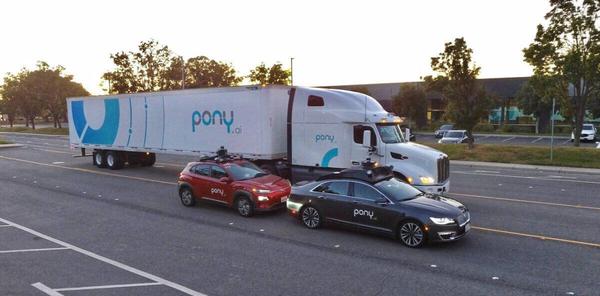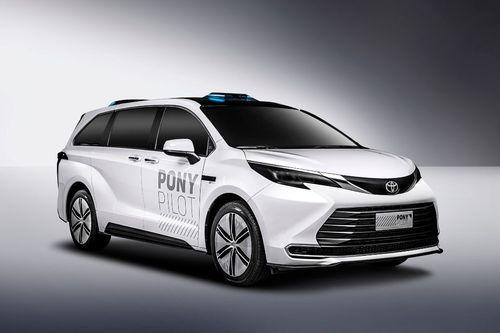
Chinese driverless car company Pony.ai has scored an unwanted first: it's recalled some versions of its AI software from US roads after admitting to faults.
Recalls of unsafe products are common in the auto industry but this is thought to be the first ever such action performed on self-driving software.
Pony.ai was founded in 2016 by Chinese developers who had worked in the States. It quickly attracted plenty of investment, established an R&D hub in Guangzhou, China, and won permits to conduct on-road tests of its self-driving tech in California and China. The company even operated the US's first robo-taxi service and has moved to offer automated delivery services, using ten Hyundai Konas on Californian roads.
Toyota has invested $400 million in the company – perhaps the most potent endorsement an automotive company can receive, give the Japanese megalith's status as the planet's most prolific automaker.

But Pony.ai hit a big speed bump when one of its cars took out some street signs in October 2021. California's Department of Motor Vehicles withdrew the company's permit to operate robo-cars in December of the same year. Trials ceased as a result of that action.
Now the company has lodged a filing with the National Highway Traffic Safety Administration (NHTSA) in which it agreed to recall certain versions of its software because they are unsafe.
Deputy administrator of NHTSA, Dr Steven Cliff, welcomed the decision as a sign the agency applies the same rigor to AI that it brings to other new automotive tech.
The recall means three of Pony.ai's ten US-based vehicles will not return to the nation's roads, and will probably complicate its efforts to sell a recently announced self-driving module it built on Nvidia tech and suggested as a short-cut for other car builders' autonomous efforts.
The company maintains the October 2021 incident is the only time one of its robo-cars has had such an accident.
Pony.ai's recall may be a first, but Tesla has already rolled back a software update to its auto-autos after it created more problems than it fixed. Muskmobiles have also been involved in fatal accidents during autonomous operations when a human was present in the car.
Though self-driving cars continue to experience problems, interest remains enormous – as shown by the recent decision by Intel to float its Mobileye driver assistance tech business unit, and probably pocket a sum that handily tops the $15 billion it paid to acquire the company in 2015. ®